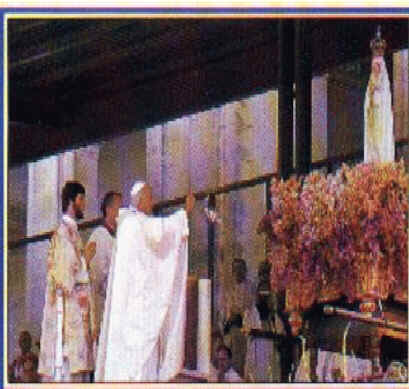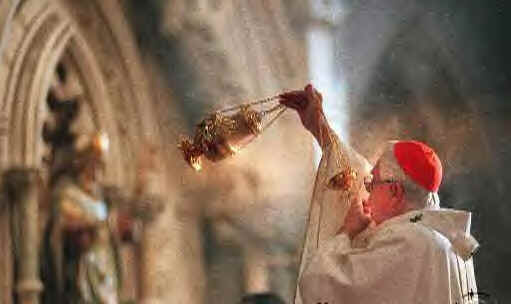The Learner
Well-Known Member
“I will Build My Church”: The Role of ἐκκλησία (16:18b cont.)
οἰκοδομήσω μου τὴν ἐκκλησίαν. Οἰκοδομέω occurs 40 times in the New Testament, and 8 times in the Gospel of Matthew.133 Οἰκοδομήσω is in the future tense, so Jesus is looking forward to building a community on the rock of Peter. 134 The theme of “building” a people springs from the Old Testament (Ruth 4:11; 2 Sam 7:13-14; 1 Chr 17: 12-13: Jer 1:10, 24:6, 31:4, 33:7; Amos 9:11).135 The metaphorical use of “build” here is appropriate for a community conceived of as a spiritual “house” or “temple” (note the description of the church as God’s building in 1 Cor 3:9; Eph 2:19-21).136The word ἐκκλησία is used 114 times in the New Testament but only twice in the gospels. Both occurrences are in Matthew (16:18; 18:17). According to Walter Bauer, the term can be use to mean the following: 1) “assembly” such as a regularly summoned political body (cf. Josephus, Ant., 12, 164; Acts 19:39); 2) “assemblage, gathering, meeting” (1 Macc 3:13; Acts 19:32); 3) the congregation of the Israelites, especially when gathered for religious purposes (Deut 31:30; Judg 20:2; Josephus, Ant., 4, 309); 4) of the Christian church or community.137 With regard to definition #4, the term ἐκκλησία may be categorized even further; Bauer asserts that in this verse, ἐκκλησία is best understood as “the universal church to which all believers belong.”138 The word ἐκκλησία often appears in the LXX, usually as the translation of קָהָל.139 The possessive pronoun μου essentially functions as an adjective and identifies the owner of the church, namely Jesus himself. Peter may be the “rock,” but the church does not belong to Peter, his successors, or to any other church leader; she belongs to Jesus, exclusively and entirely.140
“The Gates of Hell”: The Strength of the Church in the Face of πύλαι ᾅδου (16:18c)
καὶ πύλαι ᾅδου οὐ κατισχύσουσιν αὐτῆς. Πύλη means “gate or door”141and occurs 10 times in the New Testament, with four of those occurrences in Matthew (7:13, 7:14, and 16:18).142 Here, ᾅδης refers to the “nether world, the place of the dead”143; the word appears 10 times in the New Testament, with two occurrences in Matthew (11:23 and 16:18).144 The phrase πύλαι ᾅδου occurs only here in the New Testament, withᾅδου functioning as an attributive genitive to<ι> <ͅι>πύλαι .145 The phrase “gates of Hades” is a common Semitic expression for the threshold of the realm of death (11:23; Rev 1:18).146 The phrase can be found in the both the Old Testament and apocryphal writings (Job 38:17; Isa 38:10; Wis 16:13; 3 Macc 5:51), and in later Jewish literature (1QH 6.24).147 Here, though, the interpretation is a bit more dubious. Gundry argues that given the prominence of persecution in the gospel, Matthew is probably using the phrase to represent death by martyrdom.148 Even in the face of the apostles’ bloody deaths, then, the church will still remain victorious. Other commentators, such as Jeremias, lean towards the πύλαι ᾅδου serving as the forces of the underworld.149 Given the usual understanding of the phrase, it is probably best taken as meaning “the power of death” or simply “death.”150The word κατισχύσουσιν occurs only three times in the New Testament (Matt 16:18; Luke 21:36, 23:23),151 and it is derived from κατισχύω, which means “to win a victory over.”152 In other words, the power of death will not win a victory over the church. It makes sense that the antecedent for αὐτῆς refers to ἐκκλησία rather than πέτρα since “church” is closer in proximity.153 Therefore, the church, as an eschatological community, will never die or come to an end.154 As Keener states: “The church will endure until Jesus’ return, and no opposition, even the widespread martyrdom of Christians … can prevent the ultimate triumph of God’s purposes in history.155

1. The Exegetical Examination of Matthew 16:18 | Bible.org
This chapter will focus solely upon the exegesis of the verse.37 Of course, the primary exegetical problem of the verse is the identity of the πέτρα. Is Jesus referring to himself as the rock, or is he referring to Peter? Could the rock be Peter’s confession of faith? And what are the...





